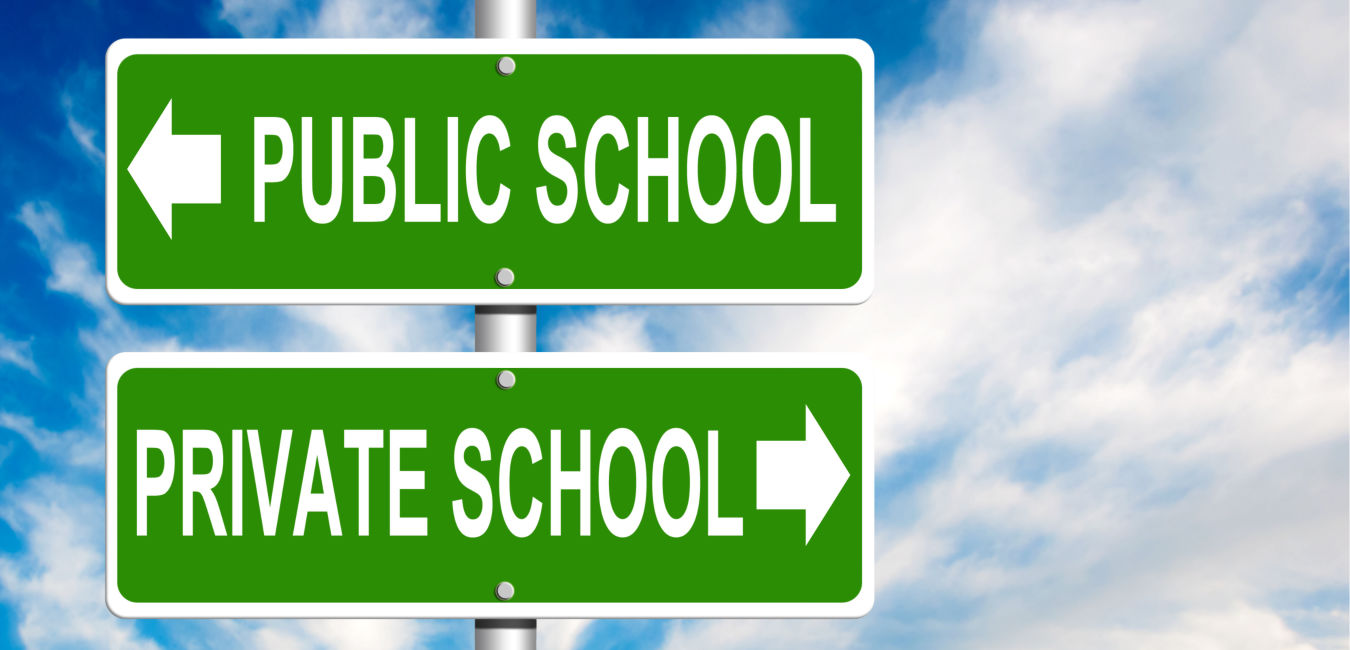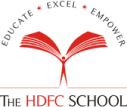Private School vs Public School - Which is the Best for Your Child?

When it comes to education, the variety of options available to parents today can be overwhelming. Two primary categories of schools that often come under scrutiny are private and public institutions. Private schools are privately funded and typically require tuition payments, while public schools are funded by taxpayers and are generally tuition-free. Each type of school comes with its own set of advantages, disadvantages, and nuances.
While deciding between private and public schools, parents must weigh several essential factors. These include academic quality, cost considerations, the learning environment, extracurricular opportunities, support for special needs, and parental involvement. Each of these elements can play a pivotal role in shaping a child's educational experience.
The HDFC School is a private school with campuses in Pune, Gurugram, and Bengaluru that brings in the joy of learning and caring in all aspects. The school promotes creativity, collaboration, inquisitiveness and personal integrity in a blend that fosters success for all students and staff of the school.
Understanding Private Schools
Private schools are institutions that are funded through private sources such as tuition fees, donations, and endowments. They often have smaller class sizes, which can facilitate more personalised instruction and individualised attention. These schools vary in terms of educational philosophy, religious affiliation, and teaching methods.
One defining feature of private schools is their autonomy. They have the freedom to set their curriculum, hiring practices, and admission criteria. This autonomy can lead to a diverse range of educational approaches, catering to specific philosophies or pedagogical methods. For example, at The HDFC Schools, we follow the CBSE curriculum, but it is built into our own project based learning approach to education. Our students learn subjects in-depth by taking a practical hands-on approach.
Private schools can offer unique and specialised curricula, such as Montessori, Waldorf, or International Baccalaureate courses. They can also emphasise certain subjects or extracurricular activities (e.g. STEM subjects). The flexibility in their teaching methods can be appealing to parents seeking an educational approach that aligns closely with their child’s learning style and interests.
Exploring Public Schools
Public schools are funded by taxpayers and are typically free of charge for students. They are subject to government regulations and often have a more standardised curriculum. Public schools are known for their diverse student populations and adherence to state educational students. They receive funding from local, state and federal sources, which can lead to varied resources between different districts. They have standardised testing and government oversight to ensure educational quality and accountability.
Public schools often offer a wide range of programs, including special education services, gifted and talented programs, and vocational training. The diverse student body can expose children to a variety of backgrounds and perspectives. Additionally, many public schools provide extensive extracurricular opportunities, from sports teams to music and arts programs.
Private Schools vs Public Schools - The Key Differences
Academic Quality
When it comes to academic quality, both private and public schools have their strengths and weaknesses. Private schools may excel in terms of resources and personalised attention, but public schools can offer rigorous academic programs, particularly in well-funded districts.
Private schools often have smaller class sizes, which can lead to more individualised instruction. Public schools, however, may have a larger pool of resources for hiring qualified teachers and offering advanced courses.
Statistics on standardised test scores and college admissions rates can provide valuable insights into the academic performance of both private and public schools. However, it's important to interpret these data with caution, as they may not capture the full picture of a school's educational quality.
The HDFC School’s curriculum encourages creativity, teamwork, communication, and ethics. We connect subjects through field trips, projects, and interactions with experts. Our educators support students in exploring the world and their potential. We emphasise project-based learning and practical experiences for holistic development. We promote critical thinking, problem-solving, and active learning. Our curriculum develops both academic and broader skills in a conducive environment for academic excellence and creative brilliance.
Cost of Education
One important factor to consider while choosing a private school is the cost. Tuition and fees for private schools can vary widely from a few thousand to tens of thousands per year. Parents must assess whether the financial investment aligns with their budget and priorities.
Public schools are funded through taxes, which means they are generally free for residents. However, this funding can vary from one district to another, leading to disparities in resources and educational opportunities.
Many private schools offer scholarships and financial aid to help offset tuition costs. Parents must explore these options and be aware of potential hidden costs, such as transportation and extracurricular fees, which can add to the overall expense of education.
Learning Environment
Private schools often emphasise a close-knit, nurturing environment. Smaller class sizes can foster strong teacher-student relationships and a sense of community. Some private schools also have a particular focus on discipline and values.
Public schools usually reflect the diversity of their communities. This can expose children to different cultures and backgrounds, promoting tolerance and inclusivity. Public schools also place a strong emphasis on providing equal educational opportunities for all students.
At The HDFC School, we create inclusive and engaging learning environments that go beyond classrooms to support diverse learners. Our best practices include Theme Learning, Discovery Learning, Spiral Learning, Circle Time, Project-based Learning, Blended and Hybrid Learning, Summer Internships, and Sharing Intellectual and Cultural Capital with schools worldwide.
To make learning more interesting and adventurous, we offer activities such as Skype-a-thon, Global Connect, Minecraft Junior Imagine Cup, Rise 4SDG, and participation in climate change projects. This global learning approach cultivates future leaders and global citizens, promoting communal tolerance, diversity, and a united world.
Extracurricular Activities
Extracurricular activities play a crucial role in a child's holistic development. Private schools often offer a wide array of extracurricular options, but public schools can provide similar opportunities, often at a lower cost.
Participating in clubs, sports teams, and arts programs can help students develop essential life skills, such as teamwork, leadership, and creativity. Parents should consider the availability and quality of these activities when making their decision.
The HDFC School believes in a holistic approach to the curriculum, rather than merely focusing on rote learning and text-book knowledge. The focus is on central concepts and principles, problem-solving and finding innovative solutions. Students will be encouraged how to think rather than what to think. These activities promise to be an integral part of the learning process, enhancing self-expression and creativity in our students. Visual Arts, Theatre, Performing Arts, Pottery, Engineering Lab, Debate and Declamation, and Creative Writing form an important part of our broad-based co-scholastic curriculum. The co-scholastic curriculum refines the literary, creative, scientific and organisation skills of the students. This results in better performance in interdisciplinary activities, cognitive development, well-rounded personal development and an attitude of sustainability.
Special Education and Individual Needs
Public schools are legally required to provide support and accommodations for students with disabilities. Parents of children with special needs should research the services available in their local public school district.
Some private schools specialise in catering to students with specific learning differences. Parents seeking specialised education should research private schools that offer tailored programs.
At The HDFC School, we provide admission to children with special educational needs. You can get in touch with us at admissions@thehdfcschool.com for more information about this.
Parental Involvement
The degree of parental involvement can vary between private and public schools. Some private schools may actively encourage and require parent participation, while public schools may have a more varied approach.
Parental involvement can be beneficial for a child's education, but it's important to consider the impact on parents' time and resources. Weighing the benefits and drawbacks of each school's approach to parental engagement is essential.
At The HDFC School, we have always encouraged our Parents to be a part of their child’s educational journey. Be it a storytelling session or an encouraging talk, a talent show or a Fashion show, we believe that student success is a shared interest of both school and family. We envision our parents as partners in this learning process.
Conclusion
Each type of school comes with its own benefits and challenges, and the best choice ultimately depends on your child’s unique needs and your family’s priorities. When choosing a school, you must consider factors like academic quality, cost, learning environment, extracurricular opportunities, special needs support, and parental involvement. At The HDFC School, we’re committed to nurturing every child’s potential through a well-rounded curriculum, state-of-the-art facilities, and a supportive community. With our emphasis on holistic development and personalized learning, we aim to build an environment where your child can grow and achieve educational success.
